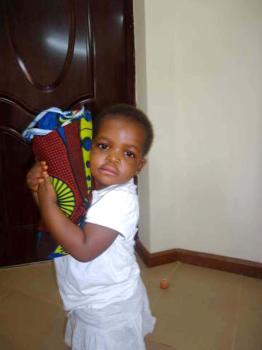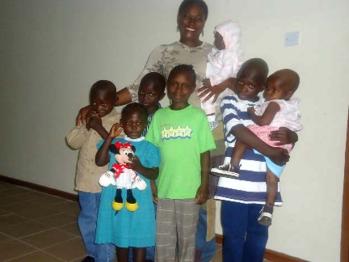Lack of infrastructure in rural areas affects health and well-being

The city of Jos is the capital of Plateau State in central Nigeria and has a population of approximately 900,000. Jos is an important commercial and tourist centre, and its tin mines attract internal migrants from all over Nigeria to the city. The region is thus very ethnically and linguistically diverse. Its location in the “middle belt” of Nigeria places it at the centre of the divide between the Muslim north and the predominantly Christian south.
In the past decade or so, Jos has repeatedly seen violent clashes between Muslims and Christians. Violent riots broke out in 2001, 2008 and in 2010, leaving over 2,000 people dead. There have also been severe violent clashes in other towns in northern Nigeria. Besides the great number of deaths and wounded people, an estimated 5,000 people have been displaced by the violence.
Jos has a large Christian population in the otherwise Muslim north, and the two tend to live in separate villages. Traditionally, the Christians are farmers, while the Muslims are cattle herders, and the two often compete for resources and land. So although religion appears to lie at the heart of the tensions, there are other underlying social and economic factors that foment the conflict. The traditional agricultural lifestyle of the region is also under threat by tin mining activities, and Plateau natives feel excluded from the country’s oil wealth and want land rights and more autonomy.
Poverty is at the root of discontent
The northern, rural regions of Nigeria continue to suffer high levels of poverty. The country has one of the greatest numbers of malnourished children in all of Africa. Children who have lost parental care and those whose parents are affected by HIV/AIDS are particularly vulnerable to food insecurity and malnutrition. With a view to achieving the United Nations Millennium Development Goals for 2015, state welfare programmes have brought some relief in recent years, but thousands of families still urgently require support.
What we do in Jos

SOS Children's Villages began its work in Jos in 2011.
Strengthening families: The family strengthening programme ensures that children have access to essential educational, nutritional and health services. It provides assistance to families affected by HIV/AIDS, for example through payment of outstanding rent or the children’s school fees, and donation of clothing and food.
We offer guidance to parents on income generation and parenting skills. The social centre also provides counselling services and medical care in cooperation with local organisations.
Care in families: For children from the region who are no longer able to live with their parents, twelve SOS families can provide a loving home for up to 120 children. In each family, they live with their brothers and sisters and are affectionately cared for by their SOS mother.
Education: The children attend the SOS Kindergarten together with local children from the community. The kindergarten also has one class for children with learning disabilities. The children then go on to complete their primary education at the SOS Hermann Gmeiner School. Around 210 pupils from the children’s village and the neighbourhood attend the school. This way, children who grow up in an SOS family are integrated into the local community from a young age.